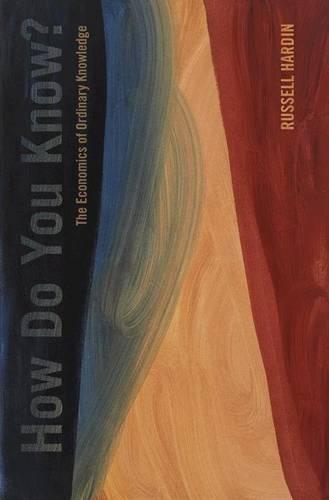
How Do You Know: The Economics of Ordinary Knowledge
(Hardback)
Available Formats
Publishing Details
How Do You Know: The Economics of Ordinary Knowledge
By (Author) Russell Hardin
Princeton University Press
Princeton University Press
6th July 2009
United States
Classifications
Tertiary Education
Non Fiction
Social and political philosophy
306.42
Physical Properties
Hardback
256
Width 152mm, Height 235mm
454g
Description
Supposes that people are not usually act knowingly against their interests or other purposes. This title presents an economic account of what an individual can come to know and applies this account to many areas of ordinary life: political participation, religious beliefs, popular knowledge of science, liberalism, extremism, and moral beliefs.
Reviews
"This book is an exceptionally clear statement of why individuals believe and act as they do and should be especially useful to policy makers."--Choice "Overall, this book is a good choice for anybody with broad interests, as Hardin is highly knowledgeable on an impressive broad scale of issues. It is well-written, and the many international examples give this book a rare global perspective... [I]t is an essential reference that serves as an excellent guide to a fast, multidisciplinary theme."--Hans Dubois, CEU Political Science Journal "[Hardin] he offers an insightful lens on popular knowledge in society and politics."--Mark B. Brown, Perspectives on Politics
Author Bio
Russell Hardin is professor of politics at New York University and the author of many books, including "David Hume: Moral and Political Theorist, Indeterminacy and Society" (Princeton), "Liberalism, Constitutionalism, and Democracy", and "One for All: The Logic of Group Conflict" (Princeton).
